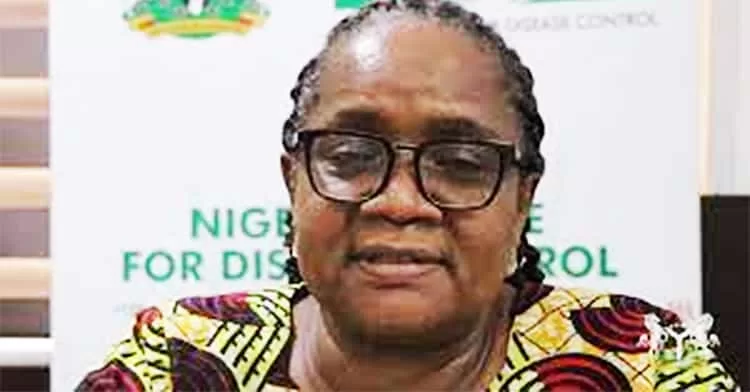The Nigeria Centre for Disease Control and Prevention, NCDC, has disclosed that there is rise in Meningitis Disease, mostly in the North, prompting the NCDC to deploy Rapid Response Team, RRT, to Jigawa, Yobe and Katsina State.
It was revealed that the NCDC deployed an RRT team to the aforementioned States following a notification by the State Governments on rising cases of suspected Cerebrospinal Meningitis, CSM, disease.
CSM is an acute inflammation of the membranes covering the brain and the spinal cord. It is, however, a very serious infection that can lead to death if left untreated.
It however remains a major public health challenge, affecting countries in the African meningitis belt, including 25 States and the Federal Capital Territory (FCT) in Nigeria.
NCDC Head of Special Projects and Partnerships Unit, Priscilla Ibekwe, made this disclosure in Abuja, during a Ministerial bi-weekly meeting on the update of COVID-19 response and development in the country’s health sector.
Ibekwe said that the preliminary reports were of 117 suspected and 12 confirmed cases, with a Case Fatality Rate (CFR) of 27 per cent from EPI Week 49 2022 and EPI Week II of 2023.
“We have also provided commodities, and on the other hand, due to the proximity of Jigawa to Yobe and Katsina States, We have also deployed RRT members to Yobe and Katsina to assess, improve on the level of preparedness and to conduct active CSM case finding for early detection of cases already exist,” she said.
Meanwhile, regarding the spread of CSM, she said Nigerians should avoid overcrowding and ensure adequate ventilation in the home.
“Cover your nose and mouth with a disposable tissue or by blowing into the elbow when sneezing or coughing.
“Wash your hands frequently especially after coughing or sneezing. Visit a health facility if you have a sudden high fever or neck stiffness for diagnosis and treatment,” she advised.
She called on all health workers to practice universal care precautions at all times: i.e. wearing gloves while handling patients or providing care to an ill relative.
“It is very important to report to the nearest health facility immediately if you experience any of the signs or symptoms listed above.
If you notice any member(s) of your family or neighbourhood with any of the listed signs or symptoms, kindly encourage them to report to the nearest health facility.,” she explained.
She, however, said that early presentation to a health facility and treatment increases the chances of survival.
“The disease is contagious and can be transmitted through tiny droplets of respiratory secretions from an infected person, during close contact such as coughing or sneezing.
“The disease is more common among persons aged less than 15 years and deaths are higher among untreated cases.
Signs and symptoms include sudden high fever, severe headache, stiff neck, sensitivity to light, difficulty concentrating, and convulsions. The major risk factors for infection include overcrowding and poor ventilation.
“During outbreaks, reactive vaccination campaigns can be used to prevent the spread of the disease.”
Discover more from The Source
Subscribe to get the latest posts sent to your email.








